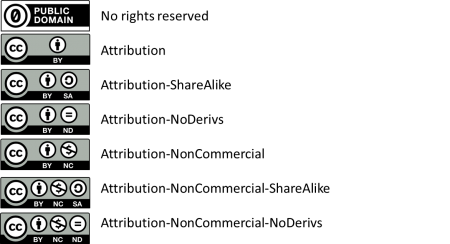Public Domain
A work is said to be in the public domain if copyright does not apply to it. This could be because:
- The copyright has expired
Copyright doesn't last forever! As of January 1, 2023, all works created before 1928 are in the public domain. The same is true for works published from 1928-1963 if the copyright was not renewed.
- The work was never entitled to copyright protection
In the United States, for example, federal government publications are in the public domain.
- The creator has placed the work in the public domain
If a copyright holder decides to dedicate their work to the public domain, then copyright does not apply. The Creative Commons license CC0 allows authors to place their works fully into the public domain.
- The copyright holder has failed to formally acquire or maintain copyright
In the United States, for instance, works published before 1978 without a copyright notice are in the public domain for having failed to comply with required formalities.
If a work is in the public domain, it is freely available for copying, distribution, display, or performance. However, all works - including public domain works - should be properly cited. For more information, see Cornell University Libraries' extensive table showing copyright terms and the public domain in the U.S.
Creative Commons
Creative Commons (or "CC" as it is sometimes called) is a nonprofit organization founded in 2001 to help facilitate the sharing of knowledge and creativity. Creative Commons makes available for free a set of licenses that creators can use to share their works to varying degrees, while staying within copyright law. Creators can choose an appropriate license at the Creative Commons website, license their work at an appropriate level of comfort, and share their work on one of the platforms that Creative Commons collaborates with.

When you find a work with a Creative Commons license attached, it may be fully in the public domain, or may require attribution. There are licenses that specify non-commercial use only, and others that specify that no derivatives may be made. Some licenses specify that any copies or derivative works must be shared under the same or a similar license. In all licenses, sharing is encouraged (under particular terms).